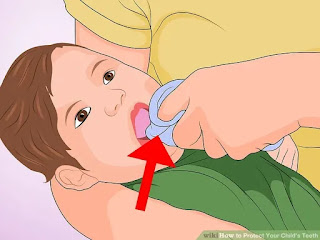Relieve a Toothache & Bleeding Gums
Relieve a Toothache & Bleeding Gums Relieve a minor toothache or stop gums from bleeding whilst working on eliminating the actual causes as quickly as possible. Press a dampened tea bag against the cavity or sore gums and bite down gently. Tea numbs an aching tooth, sores and bleeding gums. Try placing some ice cubes wrapped in a few paper towels against bleeding gums . This will cool and numb them, making you less able to feel them. Rinse the mouth 3x a day with warm salt water . Try oil-pulling by swirling coconut around your mouth for up to 20 minutes. Be sure to spit it into the trash afterwards as the oil can block drains and do not swallow it. Afterwards rinse your mouth with warm salt water. For pain relief try this technique with cannabis infused coconut oil. Placing a hot water bottle under your pillowcase is also a good way to relieve pain . Chewing clove or using clove oil can also numb tooth pain . Try...
